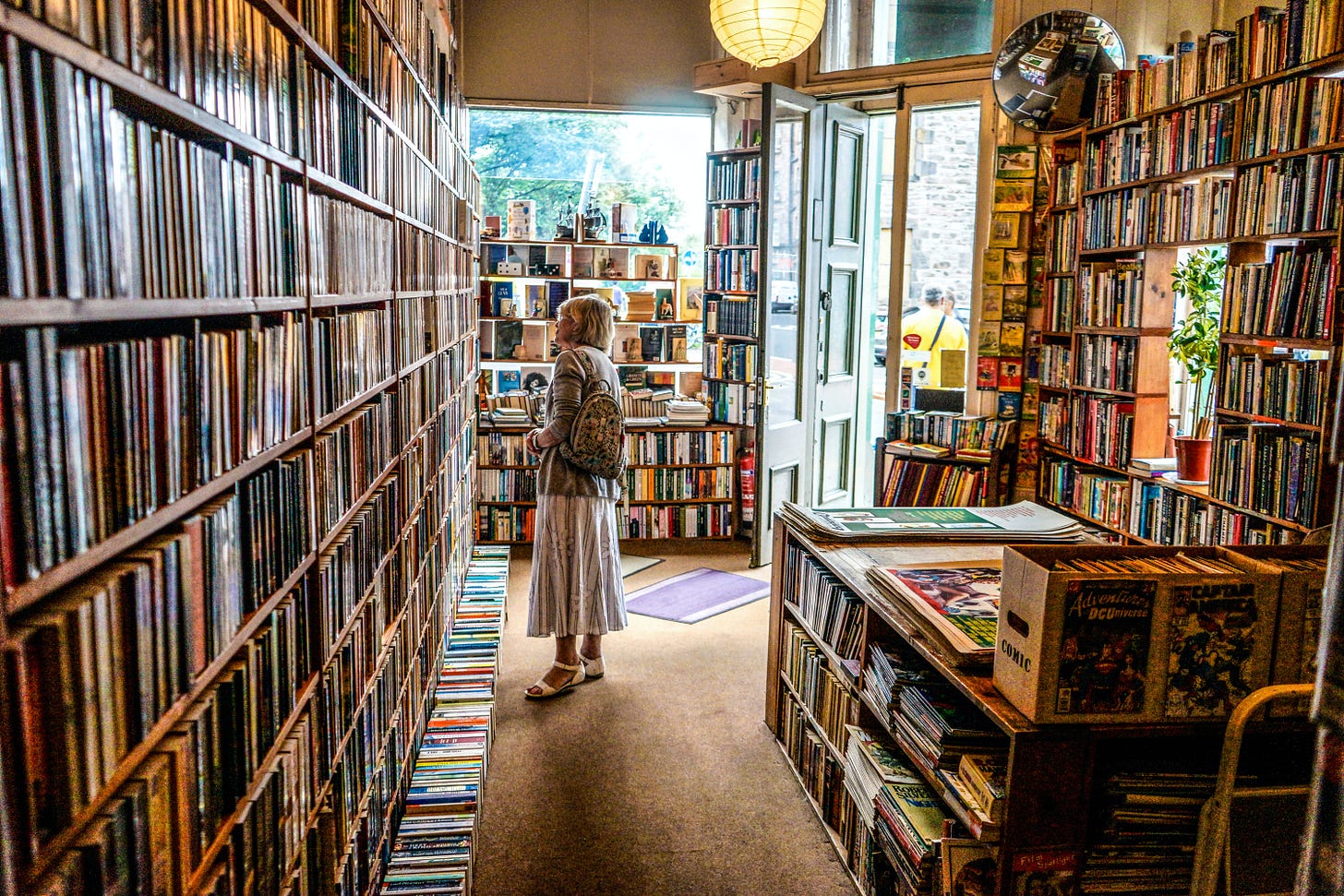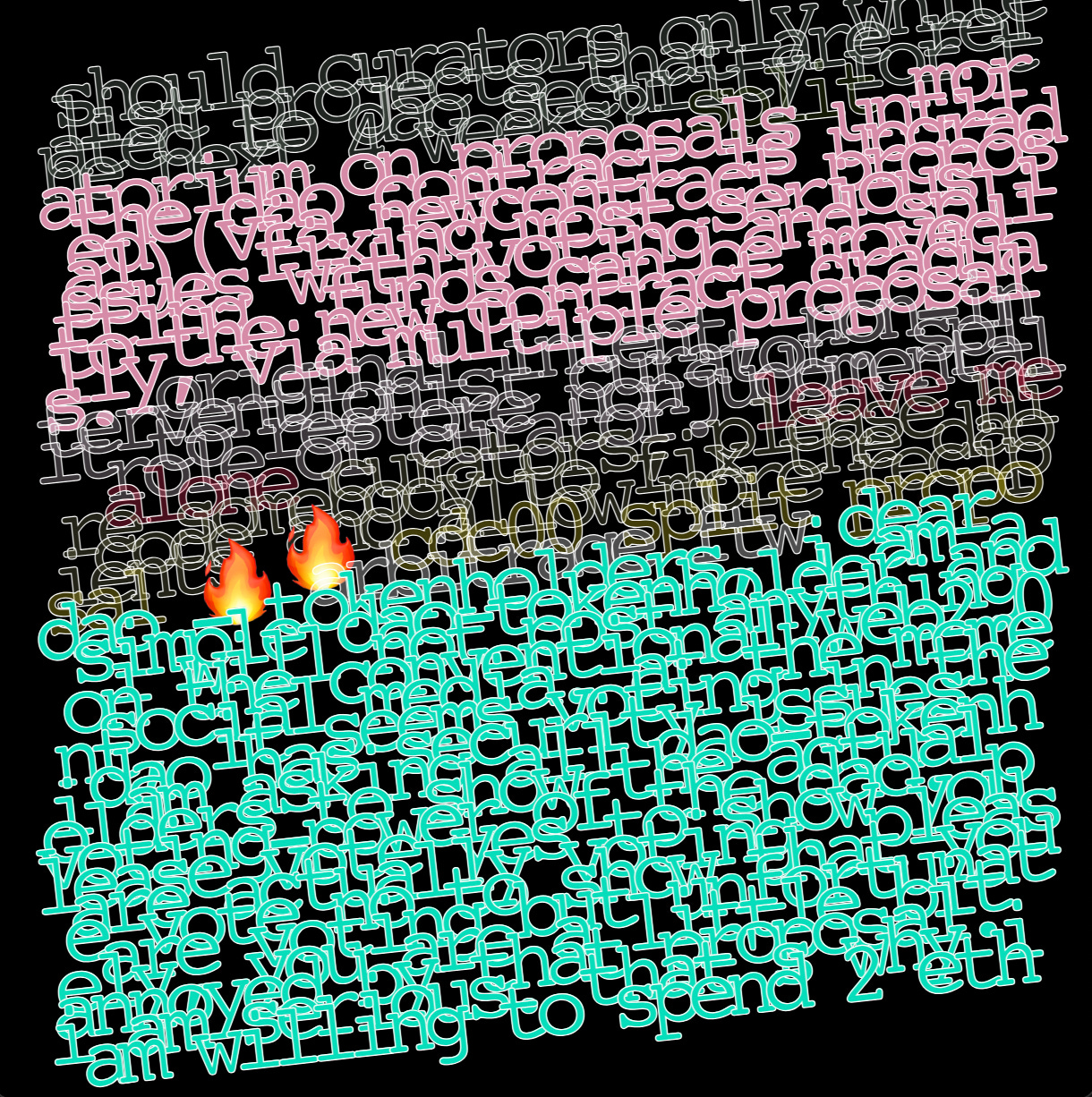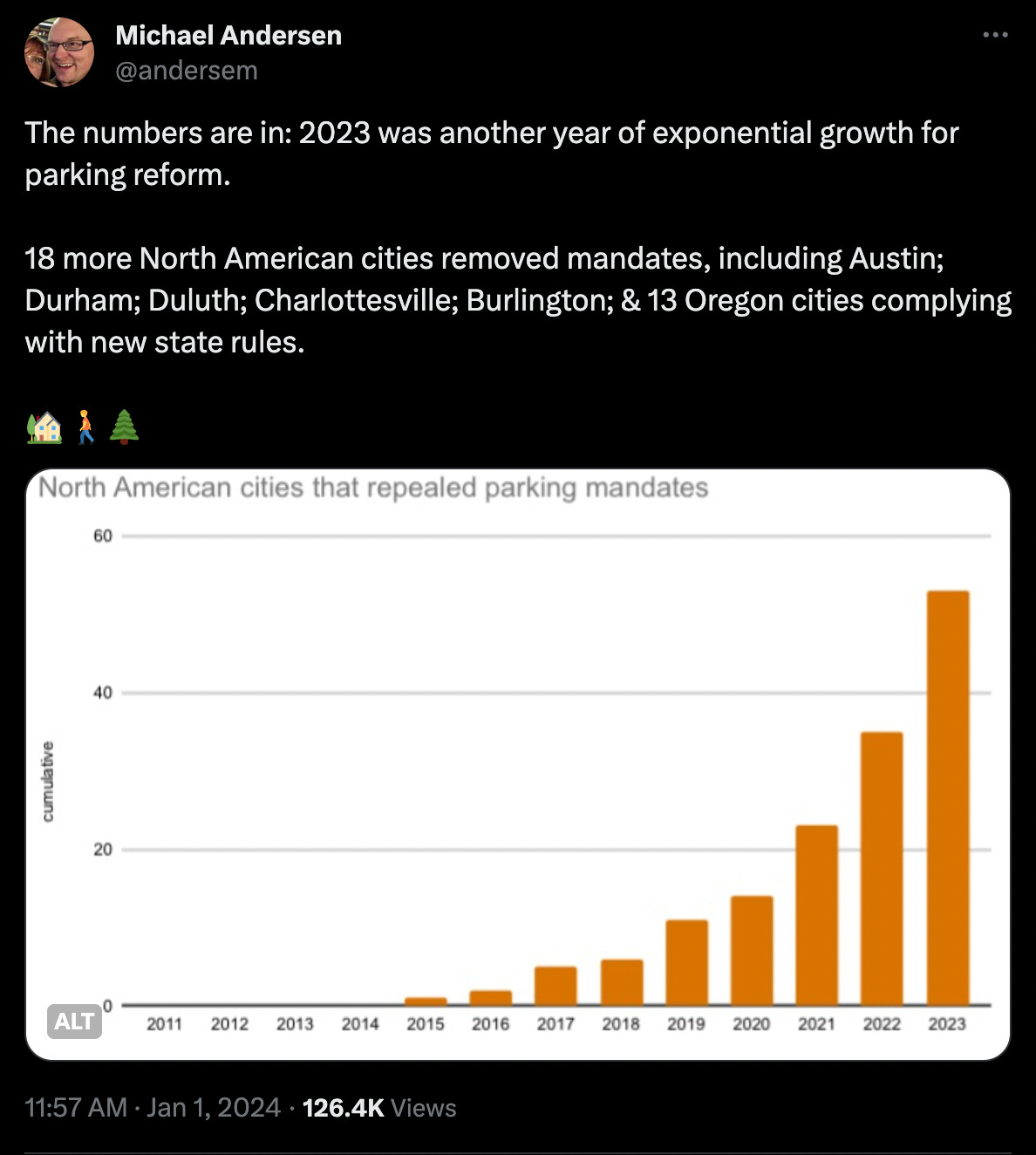No, AI Probably Won't Kill Books
It's Curation Turtles All The Way Down: Also: More Provenance Art, American Parking Reform, and The Science of Metabolism
Mat Duggan recently wrote of a conundrum on the heels of AI-generated books (ht, Justin). In the era of cheap, digital distribution, it’s already hard for good books to get noticed. AI-generated books adds to the noise and makes it that much harder.
I agree that we already live in an era where the author (creator) adds to the story. The context is just as important and that authenticity can’t be automated.
So much of the value isn't just the words, it's the sense of a relationship between me and the author. When you encounter this in fiction or in historical text, you come to understand as overwhelming as it feels in that second it is part of being a human being. This person experienced it and lived, you will too.
I agree. And I also agree with this. It’s *already* hard.
So if we were barely surviving the flood of eBooks and missing tons and tons of good books, the last thing we needed was someone to crank up the volume of books shooting out into the marketplace. The chances that one of the sacred reviewers even finds a new authors book decreases, so the community won't find it and the author will see that they have no audience and will either stop writing or will ensure they don't write another book like the first book. The feedback loop, which was already breaking under the load, completely collapses.
And, then finally, ends with this (emphasis, mine):
Now that AI books exist, the probability that I will ever blind purchase another eBook on Amazon from an unknown author drops to zero. Now more than ever I entirely rely on the reviews of others. Before I might have wandered through the virtual stacks, but no more. I'm not alone in this assessment, friends and family have reported the same feeling, even if they haven't themselves been burned by an AI book they knew about.
Mat is a super-curator. A maven. As with general power-law distributions, the amount of people who actively participate in their niche like this is small. For example, on Twitter, 10% of people produce over 80% of the content. If this general rule holds, I’d reckon about 5-10% of book readers are these power-readers. They play an outsized and important role in book curation: often also talking, sharing, and disseminating books. Those who read the 80 books per year are key disseminators, helping unearth gems so that those who read the 4 books per year can enjoy it. The latter probably for the most part read existing best-sellers that 1) their friends told them about, 2) got onto lists, 3) they have already noticed in book-stores, and so on.
The super-curators sometimes reads a book and it’s the reason it’s a success. As authors, we all wish for a Bigolas Dickolas.
To really determine if adding a barrage of automated and generated media on top of the pile will result in the destruction of the book industry, for me, comes down to two questions. I don’t dispute Mat’s direction of thinking. I question whether it’s that serious. The order of magnitude change already happened 10-15 years with cheap internet and digital books.
It’s already difficult to sift through everything. Does AI make it orders of magnitude worse? Or just slightly?
How *do* most people curate their own media consumption? If the super-curator struggles, does the trickle-down affect everything underneath it?
Question 1: It’s already difficult to sift through everything. Does AI make it orders of magnitude worse? Or just slightly.
This one is easier for me. My assumption is that it’s not. It’s not making it orders of magnitude harder. There’s already too much. In fact, I think the collapse of creative communities on Twitter post-Elon Musk is worse for many US digital creators.
Question 2: How *do* most people curate their own media consumption? If the super-curator struggles, does the trickle-down affect everything underneath it?
I’ve sometimes misjudged my own perception of an industry based on where I set in its consumption hierarchy. eg, I don’t listen to radio and for a long time, I haven’t. But, in the US, for example, a whopping 92% of American adults listen to radio at some point in their week. Book super-curators are right in that they feel anxious about all this potential AI books coming, but in reality, it’s probably the case that *most* people who read books just won’t be affected or bothered by it. They’ll be so far downstream of all manner of curation that the AI at the gates doesn’t and wouldn’t really affect them. People will still tilt towards authenticity (even if AI is involved in the process). The content mills just won’t have as a large impact because there’s less authenticity to it.
A new form of entertainment might arise from generative AI. Generative Media-as-Condensable-APIs (a great short story by Ken Liu) or mass-mega-IP simulated fan-fiction.
This might seem paradoxical to previous points I’ve made: that AI Art will result in big media becoming even bigger. As we’ve seen with variations of Harry Potter and Wes Andersonification, it’s because people have a shared past of engaging with this media. And the result of what they create/remix is niche to their cohort. Fan fiction is this already. It’s just more fan fiction of everything, putting themselves (emotionally and actually, sometimes, physically) into it.
But, I don’t think AI will kill books as we know it, today. Rather, I think the more interesting question that for me is unanswered is: if the super-curators are going to struggle (eg, not being able to buy a book on a whim from an unknown author), how does that impact everything downstream? Super-curators won’t stop, but if they change *how* they find new media, that will affect things downstream.
It might be that they choose to avoid the digital and only tilt towards the physical: reading new books from friends-of-friends, or finding physical books to read (the bare-minimum effort to leap away from the content mill). Books will go back to being more physical and more local and more personal. In that, it doesn’t sound entirely bad. Perhaps we do need to touch more grass (or equivalently, lie on our backs and read some books). But, it will also mean that we will lose *something*. Perhaps this interstitial era of cheap digital distribution before AI was anomaly. But, I don’t think it’s as doom and gloom as we might fear. We’ll see in a few years.
Photo by John Michael Thomson on Unsplash
Bonus Content!
How’s everyone being back from holidays? Lots of circling back? Lots of slight aches and pains getting back into exercise from too much rest (and too much food)?
Most of my week I’ve just spent time coding on two new art projects. Once both are out together (in February), I’ll share more. They are sister projects that deal with artworks recording their own provenance.
Speaking of self-aware and provenance art… Got two recent projects to share that I enjoyed!
Archival Nodes of the First Experiment Machine
Takens Theorem’s Perpetual project kicked off with the first collection being NFTs that directly pull out data from the famous 2016 Ethereum experiment, The DAO.
It’s a project that rightfully showcases the interesting medium of smart contract work. It’s all embedded in a shared context with everything else. So, the art itself can pull data from various experiments and re-contextualise it as art. Love it.
Another such interesting project:
You Are Here
The current era of blockchains is quite unique in that the ecosystem has expanded broadly to include “Layer 2” blockchains that scale throughput in various ways. Thus, a common UX pattern is the act of “bridging” to other networks. Admittedly, while the scaling and cost reduction is a benefit, it’s quite a new, unique UX headache, having assets, and wallets scattered across various networks.
0xShiroi’s project creates art that records *where* it is (which network). Each time it’s bridged, it records its underlying chain id, creating a map that looks like the original internet DARPA-net drawings.
It is supported on the following chains:
Ethereum1 BSC1, Avalanche1, Polygon1, Arbitrum One1, Arbitrum Nova1, Optimism1, Fantom1, Linea1, Base1, Zora1, Gnosis1, Canto1, Fuse, Mantle, Harmony, Celo, Moonbeam, Polygon zkEVM,, Aurora, Scroll, Manta Pacific, MeritCircle (aka Beam), Public (PGN), OpBNB, Sepolia, ShimmerEVM, Metis, Kava, Klaytn, CoreDAO, Astar, Telos
Big, big fan of this kind of art. I really think we’re slowly seeing NFTs come to life as a truly unique art medium (vs just linking to off-site servers and neglecting its own provenance). It was/is inevitable as is often the case with new mediums. At first they are skeuomorphic and simulacra of existing things before truly becoming enriched with the medium’s new possibilities.
Character Acting
In storytelling, there’s a classic dictum: “show, don’t tell”.
One way I always try to approach my characters is asking the question: if my character is an ‘x’ person, how can I show it through actions besides their thoughts and their words? This short snippet from the cartoon Ed, Edd, and Eddy (hello childhood!) is a brilliant example.
The way each character approaches this door/fence describes their character really well.
American Parking Reform
Living in the US is just constantly trying to get used to the prevalence of cars. One of the ways US gets cheaper housing and reduce the impact of cars has been undertaking parking reforms. There’s a lot of parking-required mandates. Some cities have entirely abolished it, while others have mandated that parking minimums are not required near public transport nodes. Slowly, but surely... Hope more cities in the US can eventually look and feel like parts of Europe and Asia.
The Rabbit Hole of Metabolism
2023 was the year I duly started pushing more of my fitness limits. A part of any such journey is delving deeper into nutrition and how the body works. It’s a massive rabbit hole that also contains quite a good amount of grifters trying to sell pseudo-science garbage and other short-cuts.
I enjoyed this review of “Burn” that details some of the counter-intuitive and uncertainties around metabolism, weight-loss, and fitness in general. As you get fitter, your body’s “engine” changes, seemingly saving some of its daily calorie burn for exercise. It’s estimated that bodies of fit people shut off other parts of their daily calorie expenditure in places like spending energy on stress, inflammation, and the reproductive system.
What’s most interesting is this:
In short, Pontzer says, your basal metabolic rate and your daily energy expenditure don’t dictate your weight change, they respond to it.
If I would venture throwing out a hypothesis. If our body’s metabolism responds/changes as a result of weight gain or weight loss, then in the context of history it might make sense because becoming sedentary would’ve been the result of illness or some other problem: in which case, your body ramps up its reproductive system (to create progeny), increase inflammation as protection to fight, and increase its metabolism to get you back on your feet. Heck knows.
It’s all interesting and at the same time a science that’s all over the place.
Jeff Rosenstock - LIKED U BETTER
Been craving proper rock/punk energy recently (a song that somewhere has an “oi oi oi” in it). This hit the spot and been jamming it this week. A great 2023 record.
Enjoy! And enjoy 2024!
Hope you get to see a nice sunset. :)
Simon









Long live Bigolas Dickolas.